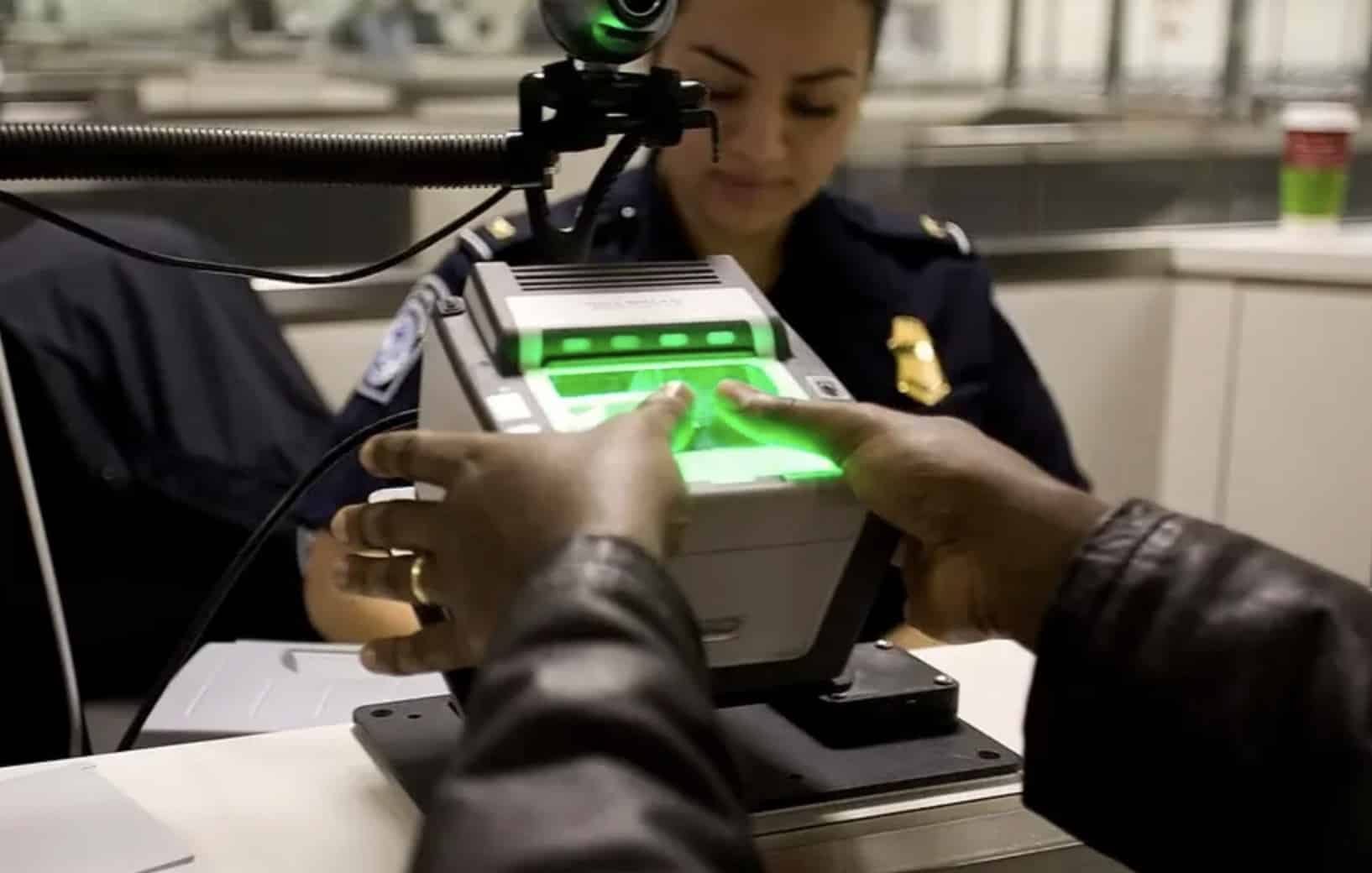Biometrics are the foundation for tools to enforce borders, both physical and digital, but controversy comes with immigration and age checks. Top stories this week on Biometric Update show the potential of biometrics to improve identity verification for proof of citizenship, travel authorization and airport security, but also the controversy that could lead to backlash – again. Others illustrate a similar process playing out online, as age assurance rules and criticism of them spread.
Top biometrics news of the week
UK Shadow Home Secretary Chris Philp says the Conservative Party is carefully considering a policy to make digital IDs mandatory to help reduce the flow of illegal immigrants over the nation’s borders. Add his comments to Tory leader Kemi Badenoch’s position on using ID cards to tackle migration and a Scottish Labour MP’s comments on cutting fraud and improving the tax system, and the beginnings of bipartisan consensus on a need for a UK national digital identity can be seen.
Home Office’s work towards remote biometrics self-enrollment for foreigners applying for travel authorization reaches an early engagement event for a possible trial next week. The government’s goal is to judge the interest of companies that can capture fingerprint biometrics and bind them to an identity through a smartphone app.
Across the Atlantic, a U.S. CBP agent spotted wearing smart glasses made by Ray-Ban and Meta is just the latest in a series of surveillance technologies adopted by the federal government this year, but it appears not to have official approval. The officer may have violated CBP policy by recording someone not subject to an enforcement action.
The TSA is considering options for contracting turnkey biometrics and digital ID screening to private sector partners, under a program that supplies screening personnel to small and medium-sized airports. The Screening Partnership Program RFI aligns with the Touchless ID pilot and the overall vision of using biometrics and automated systems to process passengers more quickly with less staff.
Kansas City is putting live facial recognition in its buses as it prepares for a role as one of the cities hosting FIFA World Cup 2026 matches. The cameras deployed by city’s public transit authority will be able to identify individuals listed in law enforcement databases and use facial analysis to flag potential threats.
ICE has contracted Clearview AI’s facial recognition for use by Homeland Security Investigations, which has previously used the technology with footage of crimes including child exploitation, through a sole-source contract. The exact scope of use is far less clear than privacy and immigrant’s rights advocates say is acceptable. BI2 Technologies was announced as intended winner of sole-source contract with ICE to supply it’s iris biometrics last week.
A report from the White House Working Group on Digital Asset Markets argues digital identity is a key enabler for national leadership on crypto. Securing digital assets could be the use case that pushes digital identity into the kind of priority Socure’s Jordan Burris argues for, including but not exclusive to mDLs.
Meanwhile the U.S. is objecting to the EU’s Digital Services Act, which provides the legal basis for age assurance on the continent, on grounds that it could increase costs for American companies, and supresses free speech. The DSA has plenty of critics on its own backyard, EDRi and DSA Observatory, for two examples, which have somewhat different concerns than their transcontinental counterparts.
Canada is a step closer to introducing age verification, as the national standards body has approved minimum requirements for age assurance technologies. CAN/DGSI 127:2025 is yet to be published, but the country’s privacy offered insights from its consultations on the subject earlier this year that may indicate the direction of national policy.
A World Bank blog post sets out a vision for enabling interoperable digital payments for greater financial inclusion through digital ID. The authors propose Fast Payment Systems as DPI components, and a model for implementing them.
1Kosmos executives, a return lead investor, a founder of a prominent public sector IT firm and $10 million in credit contributed to the company’s $57 million series B. The funds will go to growing 1Kosmos’ engineering team and bringing its biometrics, liveness detection, digital wallet and identity verification capabilities to more geographies, enterprise platforms and verticals.
IDnow has passed an assessment for the EU’s standard for AML-compliant identity verification, which includes both biometric presentation and injection attack detection requirements. Earning ETSI 119 461 Extended LoIP certification from the QSCert evaluation sets IDnow up to serve incoming AML rules with digital identity wallets ahead of time.
In this week’s episode of the Biometric Update Podcast, Socure’s Chief Growth Officer Rivka Little offers insights on the rapidly changing age assurance landscape, including recent regulatory developments.
Coming up this Wednesday, Iain Corby, Executive Director of the Age Verification Providers Association, Shreya Suri, Partner at CMS IndusLaw, and Pratishtha Arora, CEO of Social & Media Matters join Biometric Update’s Chris Burt and Joel McConvey to discuss the evolving landscape of age assurance in India. Register for this webinar now to gain critical insight into one of the most pressing data protection and digital identity issues in India today.
Please drop us a line over social media or in the comments below if you see a podcast, newsletter or other content we should share with the people in biometrics and the digital identity community.
Related Posts
Article Topics
biometrics | border security | digital ID | digital identity | week in review
Latest Biometrics News
As Socure expands its RiskOS platform to offer a suite of age assurance tools, the Biometric Update Podcast connects with…
Businesses and governments are coming to terms with the key role of digital identity in cybersecurity, and their technology providers…
A test of highly sophisticated biometric spoof attacks holds good news for BioID, which claims to be first in the…
The U.S. Treasury has sanctioned an Iranian software company that developed the facial recognition surveillance tools used by Iranian authorities…
https://www.biometricupdate.com/202508/biometric-borders-and-business-make-strange-bedfellows

